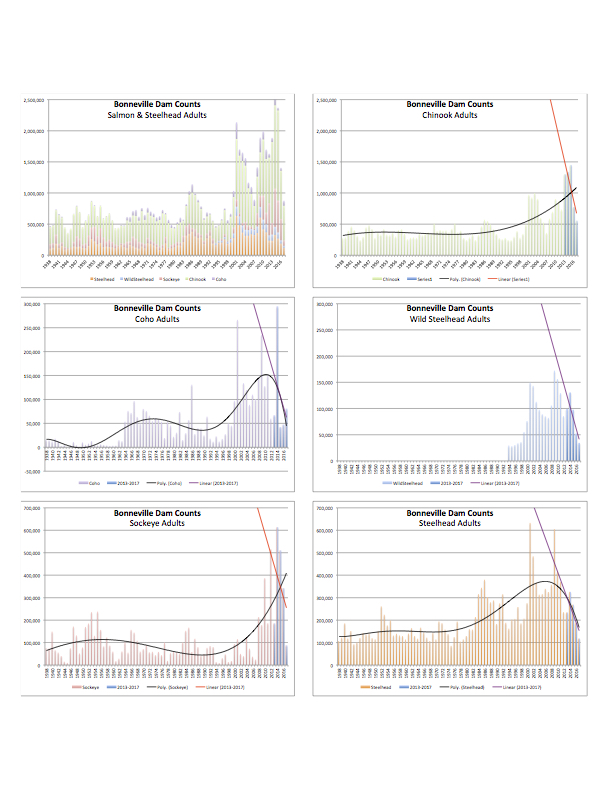forum
library
tutorial
contact

Bipartisan Bill to Protect Columbia
and Snake River Dam Passes House
by Madison Meyer
iFiber One, April 25, 2018
|
the film forum library tutorial contact |

|
Bipartisan Bill to Protect Columbia
by Madison Meyer
|
"... this legislation to save our dams on the lower Snake and Columbia Rivers."
-- co-sponsor, Represenative Dan Newhouse (R-WA)
 A bipartisan bill which will protect the lower Columbia and Snake River Dams passed in the House with a vote of 225 to 189 Wednesday, April 25.
A bipartisan bill which will protect the lower Columbia and Snake River Dams passed in the House with a vote of 225 to 189 Wednesday, April 25.
Along with Eastern Washington Congresswoman Cathy McMorris Rodgers (R-WA) alongside Reps. Dan Newhouse (R-WA), Jaime Herrera Beutler (R-WA), Greg Walden (R-OR), and Kurt Schrader (D-OR), all introduced the bill to protect dams by codifying the 2014 Biological Opinion, an agreement on how to manage river systems to protect fish and support clean, renewable energy.
Rep. Dan Newhouse (R-WA)
"I have heard from countless constituents expressing strong support to defend the clean energy and many economic benefits provided by the dams in Central Washington, which is why I introduced this bipartisan legislation with Congresswoman Cathy McMorris Rodgers and Pacific Northwest colleagues. The current Biological Opinion was negotiated with input from a diverse group of local stakeholders and provides a collaborative framework for dam operations that balances energy production with fish recovery efforts. I strongly encourage my colleagues in the U.S. Senate to act to preserve our dams and maintain low energy rates that families rely on in the Mid-Columbia region. I am grateful for the support from my House colleagues on both sides of the aisle in approving this legislation to save our dams on the lower Snake and Columbia Rivers."
Rep. Cathy McMorris Rodgers (R-WA)
"Dams and fish can coexist, and after more than two decades in the courtroom, let's let scientists, not judges, manage our river system and get to work to further improve fish recovery efforts,"said McMorris Rodgers . "When the sun doesn't shine and the wind doesn't blow, our dams provide critical baseload energy to power homes and businesses all across Eastern Washington and the Pacific Northwest. Not only that, they provide transportation and irrigation benefits for our farmers, flood control for our communities, and recreational opportunities that fuel our economy. This isn't about the merits of protecting salmon, we all agree on that. This is about providing certainty and letting experts and scientists in the region, who know the river best, work collaboratively to meet that goal. I'm proud to usher this legislation through the House."
Rep. Jaime Herrera Beutler (R-WA)
"There's only one sensible way to balance the health of our salmon runs with residents' need for low-cost, hydropower energy in the Northwest – and that's to restore a scientifically-backed operations plan," saidHerrera Beutler. "On behalf of our salmon, our Northwest ratepayers, our economy, and our environment, passing H.R. 3144 is vital to ensure that we're relying on collaboration and science to best manage our river system."
Rep. Kurt Schrader (D-OR)
"Our bill finally codifies that science, not politics or the courts, should dictate the best way to balance fish recovery and the power needs in the Pacific Northwest," said Schrader. "Scientific experts steeped in fish recovery and clean renewable energy will be able to do their job based on good science rather than an ideological crusade to eliminate dams on the river system resulting in the loss of our region's best carbon free energy asset. Simply put, the Columbia River Power System will be managed according to the 2014 Obama Administration approved biological opinion until a new BiOp can be completed by 2022, saving ratepayers millions of dollars. I am pleased to have worked with Rep. McMorris Rodgers, and our Pacific Northwest colleagues, on this bill to bring science back into the equation for our Oregon and Pacific Northwest Salmon recovery efforts."
Rep. Greg Walden (R-OR)
"In Oregon and throughout the Pacific Northwest, we are blessed with a river system that allows goods to flow to market and provides renewable hydropower that generates 43% of electricity in our state," said Walden. "River operations that have been guided by years of research by federal agencies, tribes and other cooperators have now been threatened by court order, and Northwest families and our communities will likely pay the price in higher power rates. This legislation provides needed certainty for power generation and river operations while federal agencies update the biological opinion and court proceedings continue. This is important for our ag communities, renewable energy generation and power users across our region. I was glad to work with my colleague from Oregon, Kurt Schrader, to pass this legislation through the House, and I hope the Senate will act promptly on this bipartisan plan."
In March of last year, the U.S. District Judge Michael Simon issued a court order that required federal agencies to increase spill over the two (bluefish corrects: eight dams total, four on Lower Snake and four on the Lower Columbia rivers) dams in consideration.
The order, which began April 2, is expected to cost taxpayers about $40 million overall. Scientists content that spills can lead to increased dissolved nitrogen and other gases in the water that can kill fish.
This report comes from our Wenatchee news partners, Newsradio 560 KPQ.
Related Pages:
Appeal to Stop Court-mandated Spill Fails by Shawn Goggins, iFiber One, 4/3/18
learn more on topics covered in the film
see the video
read the script
learn the songs
discussion forum
